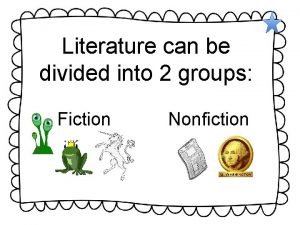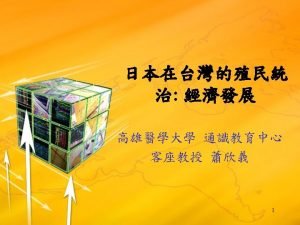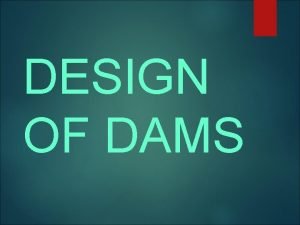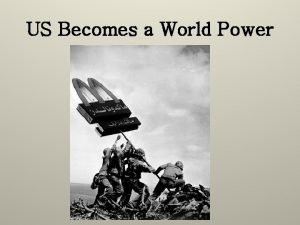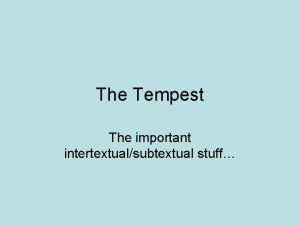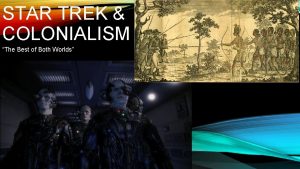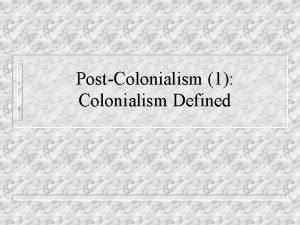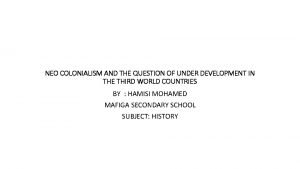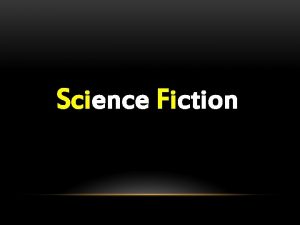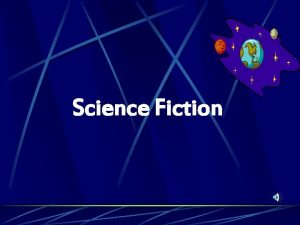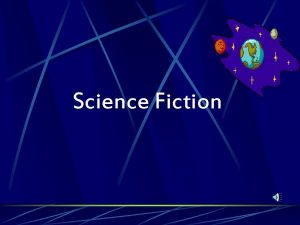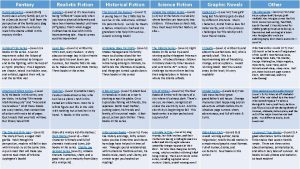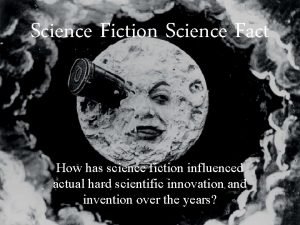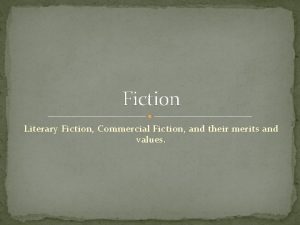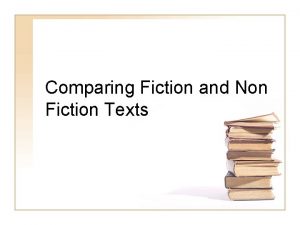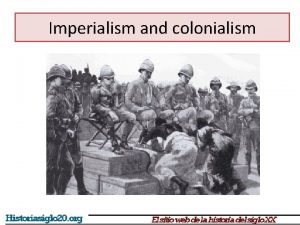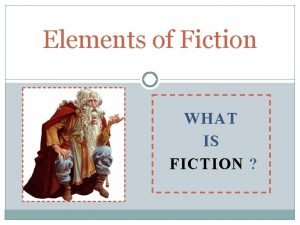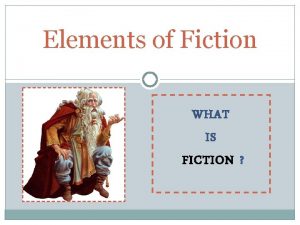Race Colonialism and Science Fiction 1 Race in

















- Slides: 17

Race, Colonialism, and Science Fiction

1. Race in science fiction Representati on of raced other Alien/ immigrant non-white non-English speaking)

2. Race in science fiction How science and technology can be USED by nonhegemonic societies How science and technology affect nonhegemonic societies/individ uals

3. Race in science fiction Narration from the perspective of a non-white, non-hegemonic, non American individual/popula tion

Why is race not represented in scifi? Tradition from Astounding science and other magazines It reflects the tradition of literature and culture in general Focus on technology and science as “neutral”

Recurring issues explored • Physical diversity • Cultural diversity • Speech/language • Ethnicity and traditions

chronology • 1960 -70 human right/anti-racist movement • 1967 Teatro Campesino (Chicana Culture) • 1974 Sun Ra and his Arkestra featured in “Space is the Place” (Afro-American culture) • 1987 Gloria Evangelina Anzaldúa • 1990 -on Guillermo Gomez Pena • 1994 Mark Dery (defined Afrofuturism)

Chicana-futurism 1987 -Narrates colonial and postcolonial histories of "indigenismo", "mestizaje", hegemony, and survival. -how chicano/chicana are 1. alienated from technologies 2. have to work with/are affected by them

Borderland /la Frontera Gloria Evangelina Anzaldúa (1987) "new mestiza" = individual aware of her conflicting and meshing identities and uses these "new angles of vision" to challenge binary thinking in the Western World

Guillermo Gomez Pena

Afrofuturism 1994 Mark Dery : “Mainstream science fiction takes inspiration from things that are going on in society, but often does not include the viewpoint of those in the African Diaspora. In the spirit of filling in this gap, the artists and writers in the Afro-futurist tradition seek to include us in the future settings that we are often left out of. "

What is it? Asks the questions: How can we name/renmane technologies using our own mother-tongue? How would science and technology be if they were invented/explored by our people? How can we rewrite the origin story of the African American people using the science fiction genre?

The Midnight Robber • Synthesis of different genres • Hybrid language (creole)

The Midnight Robber Positive, motherly role of technology Technology Renaming of technologies (Nanny Grammy, nansi web) Technology of disappearance makes the diasporic body reappear

Triangular Trade

Carnival culture • http: //www. tntisland. com/carnivalcharacter s. html • http: //www. tntisland. com/folklore. html

Trinidad & Tobago Myths 1. Douen: lost souls of children that had not yet been baptized or christened. 2. Eshu messenger between human and divine worlds, Undergod of duality, crossroads and beginnings, and also a phallic and fertility Undergod.
 It is a genre of speculative fiction dealing
It is a genre of speculative fiction dealing Non-fiction elements
Non-fiction elements Fiction vs nonfiction
Fiction vs nonfiction Colonialism and development: korea, taiwan, and kwantung
Colonialism and development: korea, taiwan, and kwantung Hydraulic efficiency formula
Hydraulic efficiency formula A solid barrier constructed at a suitable location
A solid barrier constructed at a suitable location Contemporary realistic fiction vs historical fiction
Contemporary realistic fiction vs historical fiction Imperialism vs colonialism
Imperialism vs colonialism Data race vs race condition
Data race vs race condition Post colonialism in tempest
Post colonialism in tempest Star trek colonialism
Star trek colonialism Example of colonialism
Example of colonialism Impact of neo colonialism on third world countries
Impact of neo colonialism on third world countries Key terms of post colonialism
Key terms of post colonialism Second wave colonialism
Second wave colonialism First wave colonialism
First wave colonialism Colonialism vs imperialism venn diagram
Colonialism vs imperialism venn diagram French empire at its height
French empire at its height


